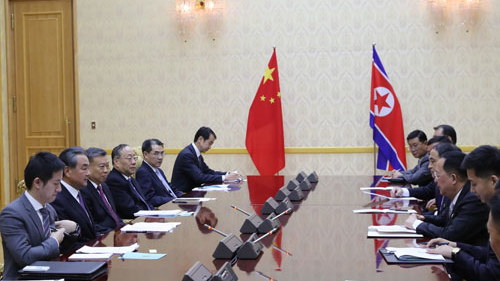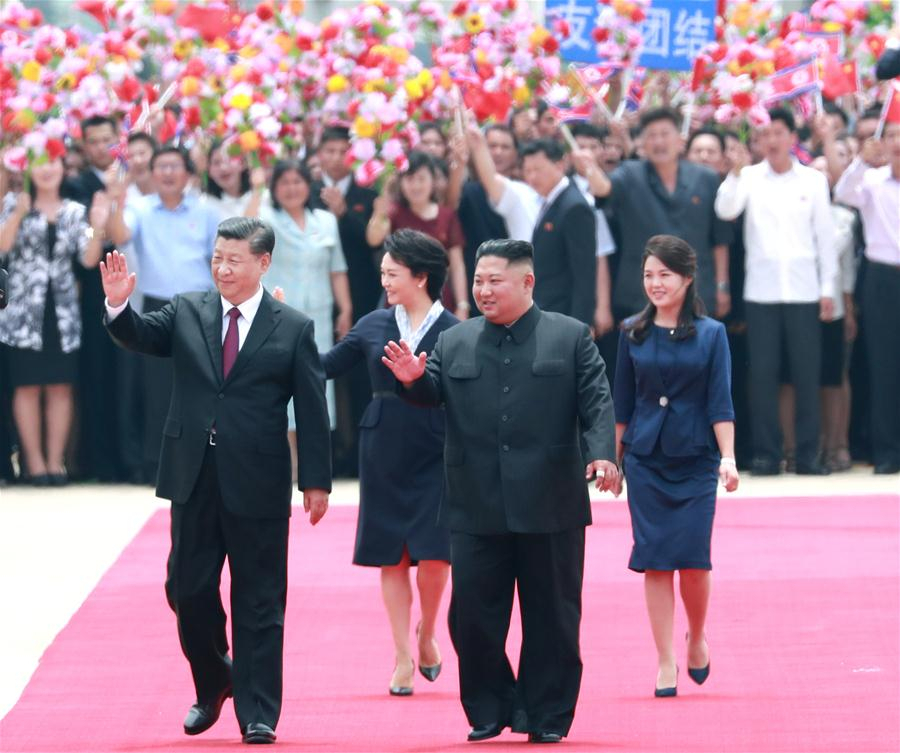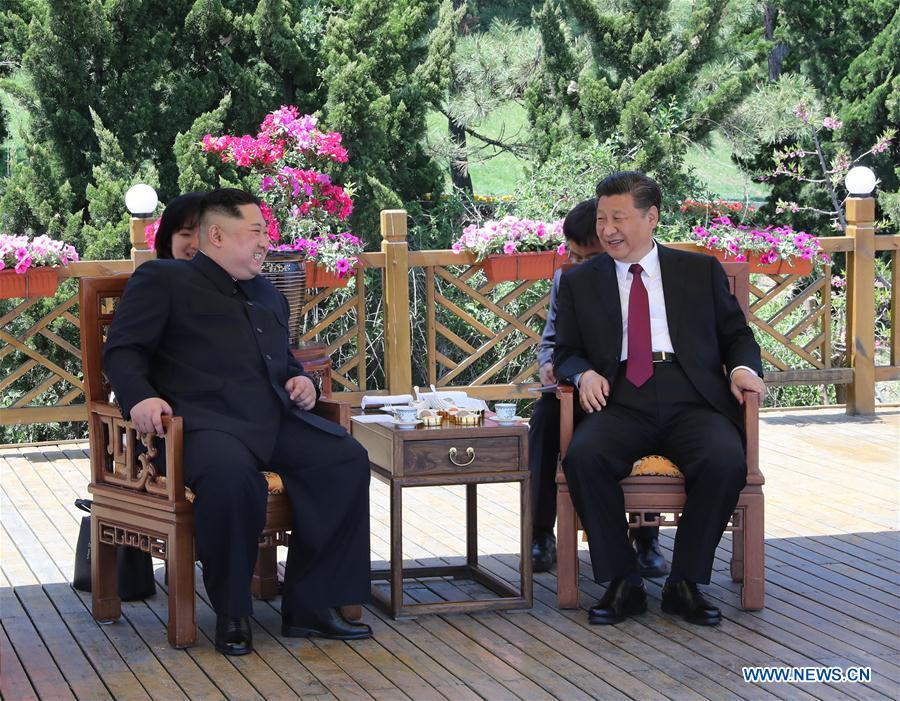

Editor's note: Tom Fowdy is a British political and international relations analyst and a graduate of Durham and Oxford universities. He writes on topics pertaining to China, the DPRK, Britain, and the U.S. The article reflects the author's opinion, and not necessarily the views of CGTN.
This week Chinese State Councillor and Foreign Minister Wang Yi visited the Democratic People's Republic of Korea (DPRK) to meet with his counterpart Ri Yong Ho, where the two countries engaged in bilateral talks. Wang affirmed that China seeks "closer communication and cooperation on the international stage" and reminded his audience that the two countries "have always been in the same boat." In saying such, he proclaimed the relationship between the two countries as "standing at a new beginning" – with ties between the two countries now touching their 70th anniversary.
The meeting comes amid Pyongyang's bid to move forward in talks with the U.S., which have stalled in recent months. Unhappy at Washington's one-sided terms, Kim Jong Un has overseen a series of short-range missile tests and rejected what they appear as denuclearization by extortion. In the midst of it all, China-DPRK ties have intensified rapidly, with Chinese President Xi Jinping's visit to Pyongyang earlier this year.
The two countries are now discovering that they have more common ground than they realize, and thus are moving their relationship into a "new normal". Both countries are finding themselves increasingly in collision with the belligerent U.S. who wants to coercively deprive them of their national interests by forcing them to submit to one-sided, uncompromising agreements akin to humiliation. In the midst of all this, the two countries have been able to recalibrate the very strategic ties which traditionally brought them together and now share a mutual interest in a closer, more cooperative relationship.

The DPRK holds a grand welcome ceremony for Xi Jinping, Chinese president and general secretary of the CPC Central Committee, at Sunan International Airport in Pyongyang, DPRK, June 20, 2019. /Xinhua Photo
What we term the "China-DPRK" alliance is not new. Imagery in Beijing and Pyongyang will show you that such was forged in the blood, when China fought together with the DPRK in the Korean War against U.S.-led forces. Much has changed since then. While China has never dismissed the security interests of the DPRK and has urged the U.S. to understand them more, the Cold War system is now over.
In the following decades, China would seek a more reconciliatory relationship with Washington and sometimes for the good regional interests and stability, Beijing cooperated on the UN Security Council resolutions regarding the DPRK for the goal of pursuing mutual dialogue and a peaceful resolution to the problem.
However, once again, China and the U.S. stand at a crossroads. The Trump administration has sought to pursue its foreign policy with the fundamental goal of aggressively reaffirming American hegemony in strictly unilateral terms. This has drastically changed Washington's attitudes towards China and the DPRK.
Despite the fact that China has shown goodwill to the U.S. on the issue of the DPRK, Trump has consistently sought to pursue diplomacy with the DPRK on unfair terms, with the White House demanding Pyongyang capitulate to all of America's preferences before they are given anything in return, thus stagnating and stalling what was a much-heralded process of talks, with Trump even walking out on an agreement to be finalized at Hanoi.

Xi Jinping (R) talks with Kim Jong Un in Dalian, northeast China's Liaoning Province, May 7-8, 2018. /Xinhua Photo
Sound familiar? The U.S. approach concerning China has had many identical themes but is in some cases even worse. The Trump administration has aggressively targeted Beijing with unilateral measures, treating China in an adversarial way and refusing to give space in dialogue, plus U-turning on agreements as they were about to be finalized and demanding Beijing gives America everything it wants before it gets anything. Thus the trade war, combined with the hyper-demonization of China as a "threat" to the U.S., has made relations increasingly strained.
In this context, China and the DPRK have started to put aside whatever disagreements they may have had, and recognize more thoroughly the shared strategic value by which they place in each other. As a result, mutual diplomacy and commitment between the two countries have increased significantly, and one may observe how the DPRK media is now continually offering China support on issues such as Hong Kong.
Thus, it must be recognized that traditionally, both countries ultimately have more in common than what sets them apart: both nations herald their founding in the aspiration of overcoming the legacy of colonialism and achieving independence, sovereignty, and unification for their respective nations. While Beijing will continue to support dialogue on the Korean Peninsula, the two countries will find their ultimate interests linking with each other in securing themselves against American unilateralism.
(Cover photo: Chinese State Councilor and Foreign Minister Wang Yi holds talks with DPRK's Foreign Minister Ri Yong Ho in Pyongyang, DPRK, September 2, 2019. /Photo via Chinese Foreign Ministry)
(If you want to contribute and have specific expertise, please contact us at opinions@cgtn.com.)

Copyright © 2018 CGTN. Beijing ICP prepared NO.16065310-3
Copyright © 2018 CGTN. Beijing ICP prepared NO.16065310-3